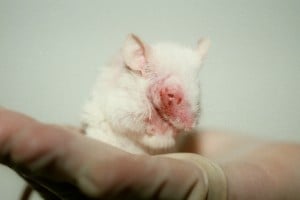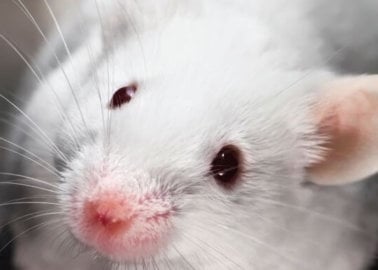Support for Animal Experiments Decreasing as Mistrust in Scientists and the Rules Governing Animal Experiments Grows
A recent Ipsos MORI poll commissioned by the Department for Business, Innovation and Skills has shown that public opposition to the use of animals in medical research has grown steadily for the past six years. More than one in three people now identify themselves as “objectors” to the use of animals in medical research. No doubt, support for animal testing will continue to fall as people become increasingly aware of exciting, progressive and effective science that uses non-animal methods. These methods, including sophisticated computer and mathematical models, human tissue and cell cultures and smarter, more focussed clinical and epidemiological studies are almost always faster, cheaper, and more accurate than animal tests.
Animal testing has delayed medical progress and even dangerously misled our understanding of disease. Ninety-two per cent of new drugs fail in clinical trials, after they have passed all the safety tests in animals. Many studies have shown that animals predict human reactions correctly only 5 to 25 per cent of the time: that’s worse than tossing a coin! A cloak of secrecy continues to surround animal research, and this must be removed. In 2012, the public are less trusting of scientists not to cause unnecessary suffering to animals, and overall, 40 per centof people say they want to know more about animal experimentation before forming a view.
Greater transparency and public awareness of the pain and distress that millions of animal endure every year in UK laboratories will only increase support for more humane methods. The government is considering whether to abolish a secrecy clause in the law that keeps much of what happens in laboratories hidden from view. Please contact the Home Office to demand that the public be given the right to know what is done in our name.




